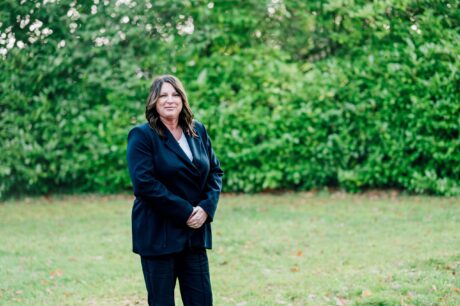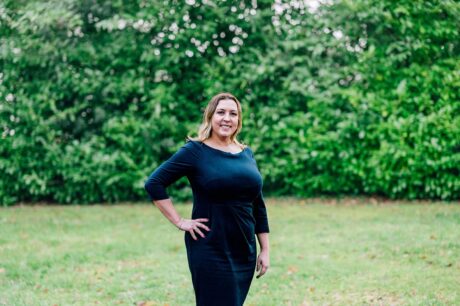Domestic Abuse Solicitors
Free initial domestic abuse consultations with our family law experts
If you’ve experienced domestic violence or abuse, don’t hesitate to report it to the police immediately. Your safety matters.

Domestic abuse FAQs
Am I being domestically abused?
Domestic abuse is defined as a pattern of behaviour between two personally connected people, where one person is abusive on a physical, sexual, violent, controlling, coercive, psychological, financial or emotional level. If you think you are being domestically abused, it is important to contact your local police station to report the incident. This can be done up to two years after the abuse took place.
How can I protect myself if I am the victim of domestic abuse?
Domestic abuse is more common than you may think. It is said to affect one in four women and one in six men in their lifetime, so you are certainly not alone, but you’re not a statistic either.
If you have suffered domestic abuse then it is your right to take steps to protect yourself from it happening again. Abusers often rely on the fact that abuse often goes unreported, or is only reported at a later stage. They retain control by believing – and forcing you to believe – that you won’t report what is happening, but by telling someone what has been going on, you get some of that control back.
What should you do if you feel at risk of immediate harm?
If you feel at immediate risk of harm, you may need to call the Police for protection. The Police have powers to help. Although there is no specific crime of domestic abuse, many forms of domestic abuse are crimes and can be investigated and prosecuted.
The Police have powers to put protections in place while they are investigating what happened. They might place a condition on your abuser preventing them from coming to your home, or a condition which requires them to leave. There are a range of options depending on the circumstances. There are also independent organisations which can help – refuges and domestic abuse charities, for example.
How to report domestic abuse?
The easiest way to report domestic abuse is to contact your local police station. You can call them directly or visit in person and speak to someone who is specially trained in dealing with domestic complications. If this isn’t possible, you can call 101 in non-emergency situations, or 999 if it is an emergency.
Can you report abuse years later?
You have up to two years to report any instances of domestic abuse. This timeline was extended by the Government in January 2022.
When should I obtain legal advice?
Clear thought is hampered by the physical and emotional harm that domestic abuse inflicts. It is difficult to decide if, and how to deal with the abuse, and with your relationship. Also, you may not know what options are out there for you.
Talking to a specialist domestic abuse solicitor might sound like a big step to take, but it is the best way to really understand your situation and what you can do about it. You could also turn to domestic abuse organisations which can offer good practical advice and support.
What options do I have?
If you are in immediate danger, do something about it straightaway. Evaluate your situation, once you know your options, you will know what to do and when. What’s right for one person will not be right for another. It might not be in your best interests to take formal action, for example, because this could place you at greater risk.
If you don’t feel comfortable to take a certain step, don’t. You will know when the time is right to act. And we are here to help guide you if you need us.
Can I get a court order to prevent further domestic abuse from happening?
This is an Order made by a Family Court. It protects someone who has suffered, or is at risk of suffering from domestic abuse, by putting important protections in place. A non-molestation order is an injunction which can be sought in an emergency. It makes it an offence for your abuser to use or threaten violence against you, and to do other things such as communicate with you, or encourage others to.
There are specific legal requirements which need to be met before a non-molestation order will be granted. Talk to us about whether it would be appropriate for you.
What other considerations will arise when seeking a court order?
A Family Court can make an Occupation Order to protect a person who has suffered, or is at risk of suffering from domestic abuse. It is an injunction, but it specifically deals with the rights to occupy a property which is, or has been, lived in by both people.
The Court has wide powers. The most common Order is that the person suffering, or at risk of suffering the abuse, is allowed to remain in the property and the abuser is ordered to leave. Get legal advice on whether or not this would be an appropriate Order to apply for on an emergency or a non-emergency basis.
What if I don’t want to go to court?
The Court can offer important protections in cases of domestic abuse, but it isn’t always the first port of call. In fact sometimes, court action can make matters worse by inflaming a situation.
Sometimes a “warning letter” is the best option. This is a letter written by a solicitor to the abuser. It explains very clearly that the abuse is unacceptable and that, if repeated, formal action will be taken through the Police or the Family Courts.
This sort of warning can be very effective. If the abuse happens again, the letter is useful evidence; it often makes it more likely that the court will grant an injunction, or that the Police will take formal action.
How will my case be funded?
Although there have been dramatic cuts in legal funding for family work, it’s still available in some circumstances. People who have been assessed as suffering or at risk of suffering domestic abuse, or parents of children who have been similarly assessed, may be entitled to legal funding. You will need to satisfy a means test which looks at the amount of money you earn and spend.
If you qualify then your legal advice and representation will be either completely free or you may have to repay it but at a significantly reduced rate. We will be able to help you work out your best funding option.
Can I get legal aid?
It is possible to apply for legal aid for domestic abuse cases if you are not in a financial position to pay for the costs. You will need to satisfy a means test which looks at the amount of money you earn and spend, and provide evidence of the reported abuse and give this to your legal aid solicitor or CLA adviser (such as a letter from the police, the courts, social services etc).
Can you claim compensation?
Yes – there are two different types of claims you can pursue – Civil and Criminal Injuries Compensation Authority (CICA). A civil claim is against your abuser personally, whereas a CICA claim is set up to provide compensation linked to domestic violence and abuse. It is worth noting that there are qualifying criteria that need to be met in order to claim through the CICA, but we can discuss this in more detail with you if you would like to proceed.
How does domestic abuse affect the family?
Witnessing or being a part of domestic abuse can affect the family in a variety of ways. One example is children involved in or observing abuse of a parent or sibling can deem it as normal behaviour and carry it forward into their adult lives. Another example is around personal behaviour and coping mechanisms. A child may go on to have a variety of behavioural problems or develop a range of mental health complications.
Is domestic abuse a criminal offence?
Domestic abuse is a criminal offence, carrying a maximum imprisonment term of five years, and/or an unlimited fine.
What is the domestic abuse act 2021?
The Domestic Abuse Act 2021 was developed to provide victims of abuse with additional support, and to strengthen the response from the police and local authorities. It includes (but is not limited to) a clear definition of domestic abuse, alongside powers for dealing with domestic abuse, local authority support, protection for victims and witnesses and offences involving abusive or violent behaviour.
What can I do if someone I know is being abused?
First and foremost, it’s important to let them know you are there should they wish to talk to you about it. If you feel this person is in immediate danger, you can attempt to encourage them to call the police, or if you feel it’s necessary, call the police on their behalf.
Why is abuse not reported?
There are a multitude of reasons why domestic abuse is often not reported. Some of the key reasons are usually linked to worries about retaliation from the abuser or other consequences. Reasons can also be linked to children, such as fear of losing contact, alternatively a lack of trust or confidence in the local authorities.
How many cases go unreported?
It is estimated that around 2.1 million people aged 16 or over suffered from domestic abuse between March 2022 and March 2023 (latest ONS report statistics). Of this number, 889,918 (41.8%) were reported to the police.
Can domestic abuse charges be dropped?
It can be difficult for charges to be dropped by the victim once investigation into a domestic abuse case begins. Victims can make a request to their legal team to review, however the case will often advance to trial stage without any further statements from the victim.
Can you record domestic abuse?
Recorded incidents of domestic abuse can support your case in the family court. However, it is recommended you consult with a legal professional before doing so as safety is a prime concern and legal guidelines need to be adhered to.
Can’t see what you’re looking for?
Send us your questions via the contact form and we will be happy to assist.
See what our customers say…
Emma & Megan were brilliant throughout…
Emma & Megan were brilliant throughout our sell and purchase, responsive and diligent they ensured everything stayed on track. Would highly recommend Eric Robinson for your conveyancing needs.
Samantha Gilby – the best solicitor in town!!
We used Eric Robinsons conveyancing department for the sale of our house and purchase of a new property. Our Solicitor was Samantha Gilby from the Bitterne office. Samantha was amazing. She was constantly on the ball, always contactable and reacted to queries very quickly. She was clear and concise with all the information. Buying and selling a property is very stressful and there is a lot of information that needs to be understood. Samantha made the whole process flawless, smooth and easy. There were no doubts from us whatsoever with the work that Samantha did for us. She made the whole process easy to understand and we totally trusted that she would get the job done. It’s obvious that she works very hard and has her clients interests as her priority. I have nothing but praise for Samantha. She is a credit to your company and I do hope her work is recognised and duly rewarded.
Superb service from start to finish
I used the Chandlerford branch of Eric Robinson, and delighted to say they offered a superb service from start to finish, they kept me informed on proceedings with the property sale every step of the way, best Solicitor firm I have ever dealt with, and would have no hesitation in using again or recommending. Many Thanks to Terry, Kristen, Emma and Megan ***** Service
Absolutely amazing service Emma and…
Absolutely amazing service Emma and Megan were an amazing duo ,nothing was to trouble they were polite, professional and needed loads of patience dealing with me . Once again many thanks for your Sterling work Glenn and Linda
We received outstanding service
We received outstanding service from Chantelle. Very quick responses to all emails, a fast and accurate quote, keeping us updated at every stage and willing to chase third parties if they were dragging their feet. Could not have been better so would highly reommend Eric Robinson solicitors
Andrew – Advice on Redundancy and Agreement…
Hello this is Andrew here and I finally finished work after a very agreeable redundancy with my company. Chelsea at Eric Robinson who worked on the documentation and process was superb 🙂 Fantastic advice and explanation of everything that I could not determine. The whole engagement was great and the final meeting and signing of documents was perfect. Thanks so much Andrew
Emma & Megan were brilliant throughout…
Emma & Megan were brilliant throughout our sell and purchase, responsive and diligent they ensured everything stayed on track. Would highly recommend Eric Robinson for your conveyancing needs.
Samantha Gilby – the best solicitor in town!!
We used Eric Robinsons conveyancing department for the sale of our house and purchase of a new property. Our Solicitor was Samantha Gilby from the Bitterne office. Samantha was amazing. She was constantly on the ball, always contactable and reacted to queries very quickly. She was clear and concise with all the information. Buying and selling a property is very stressful and there is a lot of information that needs to be understood. Samantha made the whole process flawless, smooth and easy. There were no doubts from us whatsoever with the work that Samantha did for us. She made the whole process easy to understand and we totally trusted that she would get the job done. It’s obvious that she works very hard and has her clients interests as her priority. I have nothing but praise for Samantha. She is a credit to your company and I do hope her work is recognised and duly rewarded.
Superb service from start to finish
I used the Chandlerford branch of Eric Robinson, and delighted to say they offered a superb service from start to finish, they kept me informed on proceedings with the property sale every step of the way, best Solicitor firm I have ever dealt with, and would have no hesitation in using again or recommending. Many Thanks to Terry, Kristen, Emma and Megan ***** Service
Absolutely amazing service Emma and…
Absolutely amazing service Emma and Megan were an amazing duo ,nothing was to trouble they were polite, professional and needed loads of patience dealing with me . Once again many thanks for your Sterling work Glenn and Linda
We received outstanding service
We received outstanding service from Chantelle. Very quick responses to all emails, a fast and accurate quote, keeping us updated at every stage and willing to chase third parties if they were dragging their feet. Could not have been better so would highly reommend Eric Robinson solicitors
Andrew – Advice on Redundancy and Agreement…
Hello this is Andrew here and I finally finished work after a very agreeable redundancy with my company. Chelsea at Eric Robinson who worked on the documentation and process was superb 🙂 Fantastic advice and explanation of everything that I could not determine. The whole engagement was great and the final meeting and signing of documents was perfect. Thanks so much Andrew
Key contacts
Latest family law insights

What rights do grandparents have? A guide for UK families

What is a prenuptial agreement, and should I get one?

What Are the Legal Grounds for a Divorce in the UK?
Book a free family law consultation

Why choose Eric Robinson Solictors?
- Straightforward jargon free advice that is tailored to your specific needs
- Cost effective legal services that give you peace of mind
- Providing expert and trustworthy legal advice for over 60 years
- 8 offices spanning Hampshire, London, West Sussex & Wiltshire
Get in touch
Related family law services
Divorce Solicitors
A divorce Solicitor can guide you through the process quickly and efficiently.
Child Matters
We will work hard to negotiate an arrangement for the children that both parties, and the children themselves, are happy with.
Cohabitation
We advise and support unmarried couples who are separating, and help them deal with the financial consequences.
Pre-Nuptial and Post-Nuptial Agreements
Few marrying couples consider the financial consequences of a potential split.
Separation Agreements
A separation agreement is for couples who intend to separate and need a legal document for financial arrangements.
Civil Partnerships
We assist civil partners through relationship breakdowns, helping resolve issues about children and pre-partnership agreements.
Change of Name
There are a number of reasons as to why someone may wish to change their name.
Mediation
At Eric Robinson Solicitors, we help couples deal with and effectively manage the practicalities of separating.





